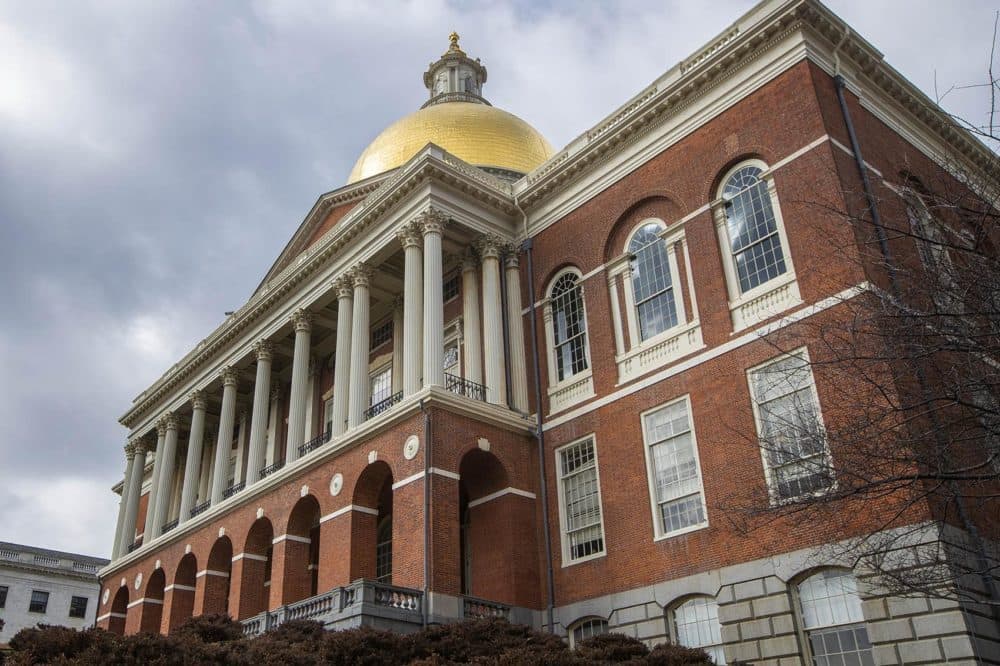Advertisement
Mass. Uses Fear Of Public Scrutiny To Secure Deeper Medicaid Discounts From Drugmakers
Resume
Gov. Charlie Baker's administration was ready.
Thirty letters requesting meetings to discuss deeper drug discounts arrived in the inbox of major pharmaceutical executives just weeks after Baker gained leverage that would compel many of those executives to respond. The Massachusetts Medicaid program had already asked some of these same drugmakers to talk about taking less for new, high-priced medications, and the companies had refused.
This time was different. Now, concluding the first round of negotiations, the administration said it has secured $6 million in state savings tied to six drugs produced by three manufacturers.
"We're quite pleased with at least our initial efforts in this work," Health and Human Services Secretary Marylou Sudders said. "We're deeply appreciative of the language that was provided to us by the Legislature. We know it wasn't easy."
The power to negotiate lower drug prices comes from section 46 of the current Massachusetts budget, which outlines new steps she can take to seek supplemental rebates for drugs that cost more than $25,000 a year per patient, or for which the state spends more than $10 million a year. Pharmaceutical firms are already required to give Medicaid programs their best price.
"We're quite pleased with at least our initial efforts in this work."
Marylou Sudders
If a drugmaker refuses to negotiate, or if talks break down, Sudders can propose a price and hold a public hearing on that proposed “value." She could eventually refer the drug to the state’s Health Policy Commission for further review.
"Having that accountability process available to us certainly led to successful negotiations with the first several at the table, and we have active negotiations with a number of other ones right now," Sudders said.
Sudders said some pharmaceutical firms didn't wait for a letter before contacting the state because "they were fearful of going through the accountability process." Viiv Healthcare was among those volunteers, according to Sudders' office, and is one of three manufacturers that have new drug rebate agreements with Massachusetts.
Viiv’s deal covers three of its HIV treatment drugs — Triumeq, Juluca and Dovato. MassHealth’s other agreements are for hepatitis C treatments — AbbVie’s drug Mavyret, and two generics marketed by Asegua, a Gilead subsidiary.
Massachusetts and the pharma firms are prohibited by federal law from disclosing the terms of their agreements. All six drugs are on the preferred drug list for MassHealth, the Massachusetts Medicaid program.
Triumeq, which lists for $34,672 a year, is the only drug expensive enough to trigger more intense public scrutiny, had negotiations failed. Viiv and industry trade group MassBio both declined requests for interviews.
"Patient access to our medicines is our utmost priority," Viiv said in a statement. "While we do not discuss confidential conversations with payers, we are pleased that MassHealth is providing coverage of our medicines for people living with HIV on Medicaid."
The goal is to save $28 million in Medicaid drug spending this fiscal year. It’s a small piece of the more than $2 billion MassHealth expects to spend on medications. But Trish Riley, director of the National Academy for State Health Policy, calls the Massachusetts approach a “giant leap” among Medicaid programs that can set payments for services and treatments but not for prescription medicines.
Riley said Medicaid directors have learned to be cautious with the pharmaceutical industry.
"This is a very litigious activity," Riley said. "Anything that one does to bring down pharmaceutical prices almost always provokes some kind of challenge."
"I think the state is doing what they have the authority to do under state and federal law."
Tom Barker
Massachusetts may well be sued. But Tom Barker, who was general counsel at the U.S. Department of Health and Human Services under President George W. Bush, said more public scrutiny of drug prices does not appear to be illegal.
"I think the state is doing what they have the authority to do under state and federal law," said Barker, now a partner at Foley Hoag.
But legal questions linger, even as Baker pursues legislation that includes a similar strategy to curb drug prices in the private insurance market.
Lora Pellegrini, president and CEO of the Massachusetts Association of Health Plans, said she's hopeful that what's happening in Medicaid could have ripple effects.
"The pharmaceutical industry maybe is starting to understand they need to come to the table and provide the payers with lower prices," Pellegrini said. “So that we can make health care more affordable for everyone."
Correction: An earlier version of this story gave the wrong figure for the number of drugs produced by the three manufacturers linked to the state savings. It is six. The post has been updated. We regret the error.
This article was originally published on November 06, 2019.
This segment aired on November 6, 2019.
